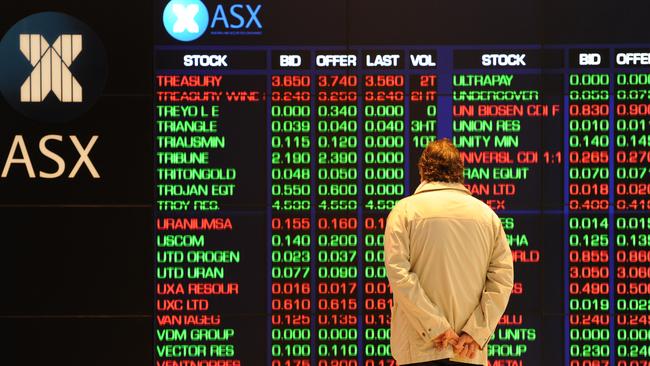’Good investment’ on exchange a waste of money
IF you have a burning money issue, or you want to win a fight with your spouse, put your questions to Barefoot Investor.

Barefoot Investor
Don't miss out on the headlines from Barefoot Investor. Followed categories will be added to My News.
Q I was working in the building industry for 10 years before becoming self-employed in 2002. I had $35K in super in Cbus when a friend convinced me to invest in a company that was about to list on the stock exchange. I decided to use my super money to make the investment, by setting up a self-managed fund. After six years the company is still not listed and I’m making after-tax contributions just to keep paying accountant fees. How can I get out of this mess?
Nick
A I’ll avoid telling you you’re an idiot for doing this, because I’m sure your wife has already done so.
Now your biggest down side is throwing good money after bad.
If there’s no one willing to buy your share in the company, the Tax Office states: “The asset should be recorded in the financial reports and statements at a nil or nominal amount.”
Then instruct your accountant to wind up your SMSF — stick to Cbus. Given you’re self-employed, you should make pre-tax contributions into super, and as much as you can because you’re playing catch-up.
THE $470,000 DILEMMA
Q My girlfriend and I have been madly saving for our first home but are worried about sinking all our hard-earned into the one asset. We’re in our late 20s with a combined income of $160K per annum. We are debt free and have around $470K ($200k in savings, $70k in shares and $200k in bonds) and we’re looking to spend around $750k on our first home. Should we keep a portion of our money in shares or sink it all into the house to minimise the mortgage?
Ryan and Belinda
A You two are financial superstars. Well done! If I were you, I’d save up three months of living expenses (around $20,000) in a high-interest online savings account. I wouldn’t sell your shares (so long as they’re in good businesses). Then I’d throw everything else onto the mortgage, with the aim of being debt free before you’re 40. If you can achieve that you’ll never have to worry about money again.
BUY CAREFULLY IN THE US
Q Is it still a good strategy to buy cheap foreclosure investment properties in the US? Given the falling Aussie dollar, rising US interest rates and the GFC long being over, I’m wondering whether I’ve missed the boat. Do you think the best bargains have already been snapped up?
Tim
A I wouldn’t touch foreclosure homes, and I’d stay well away from buying a subprime slum.
That being said, I believe that US housing offers better upside than Australian property (even though US house prices are up 10 per cent in the past year). If you can be bothered with the hassle and cost of buying overseas (I can’t), then it’s a decent idea.
Just make sure you buy a good-quality family home in a good-quality neighbourhood, and rent it out to a good-quality family. Buy it from a local real estate agent. Steer well clear of offers of an “investment opportunity” — they’re mostly run by sharks.
GET BACK ON TRACK
Q My husband and I were extremely fortunate to be gifted $50,000, and are nervous about using it wisely.
We have a $480,000 mortgage fixed for another year, $12,000 on the credit card and a car loan of $1100 per month (with about 14 months left).
Ian and Wendy
A This is your opportunity to get back on track, because right now you’re on the wrong one. Here’s what to do: with that $50,000, get rid of the credit card (pay it down, cut it up) and pay out the car loan. Then put the $22,000 or so you have left into a high-interest savings account as a financial buffer. Honour the person who gave you this windfall by living within your means.
Originally published as ’Good investment’ on exchange a waste of money


